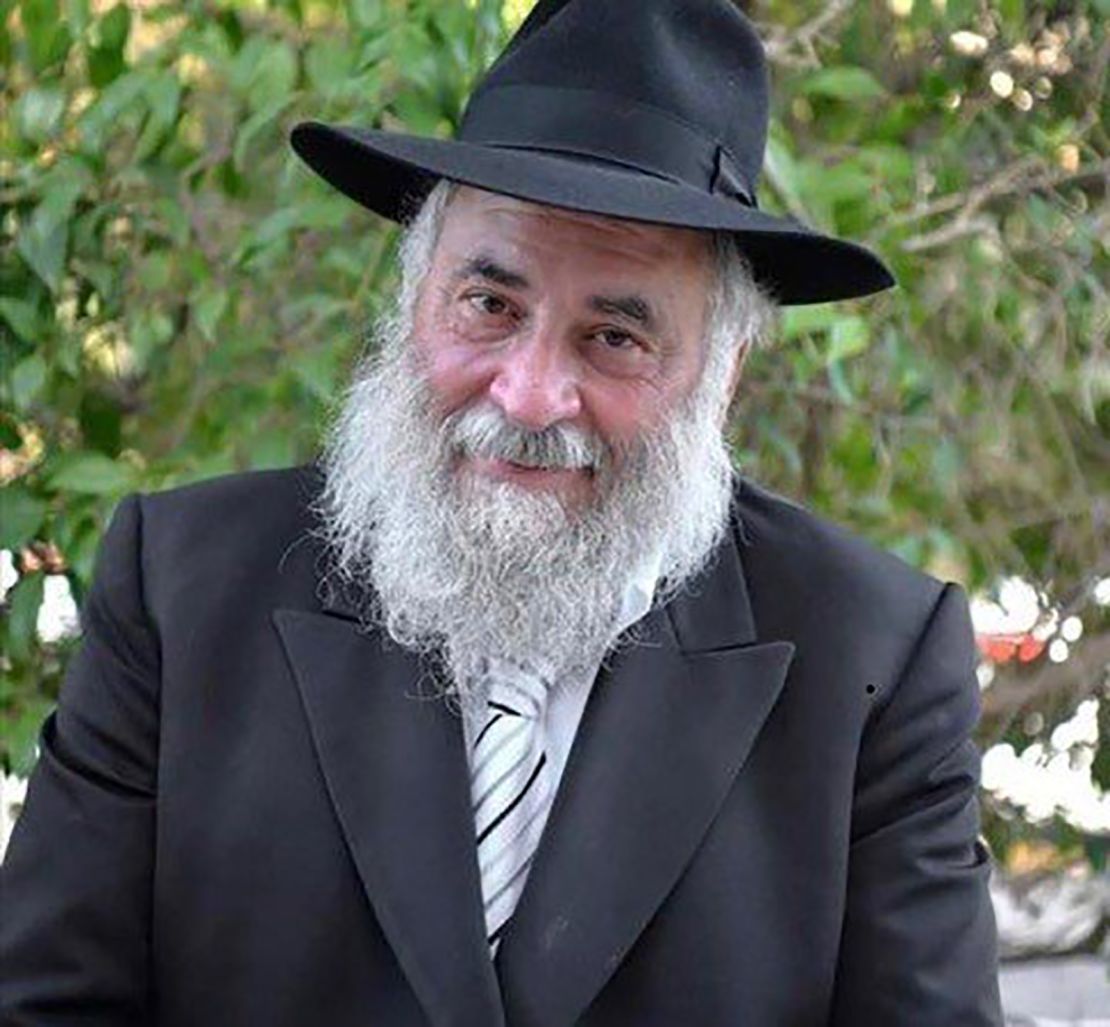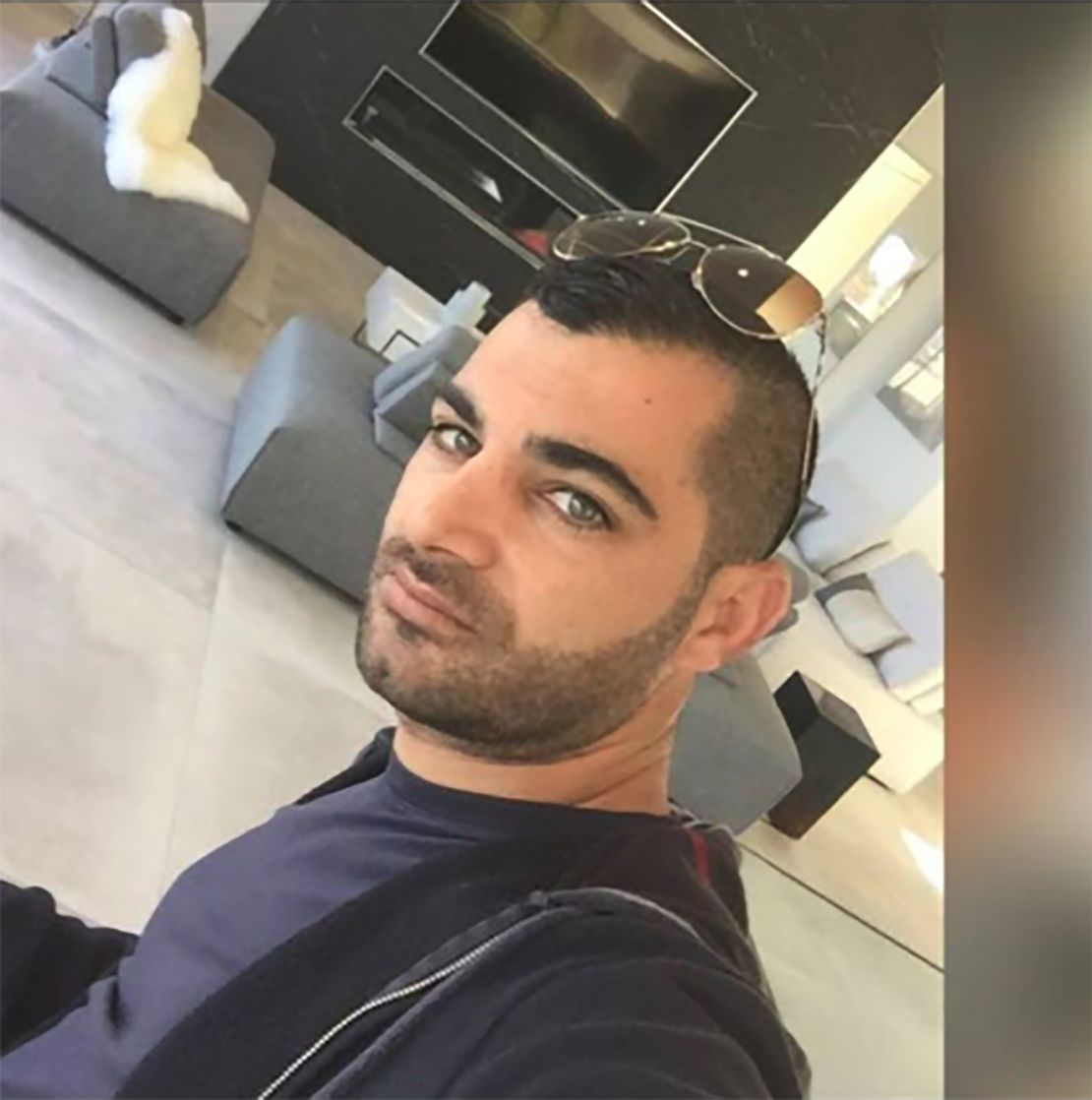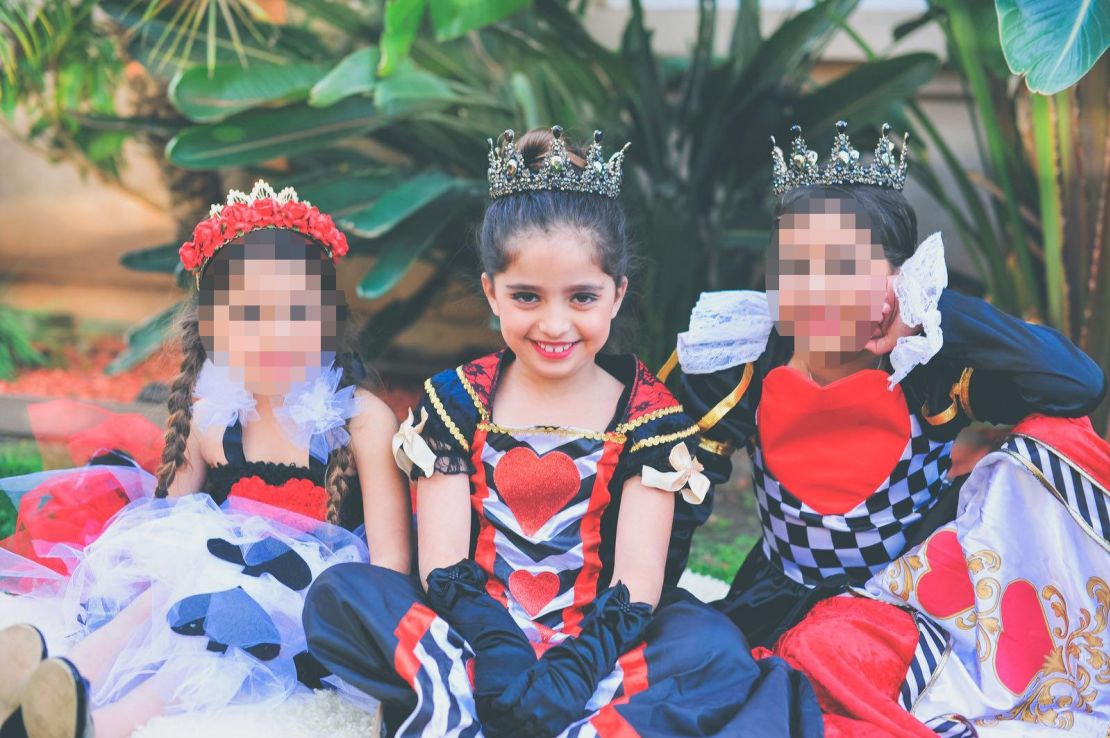It was the last day of Passover, one of the holiest days of the year, and Rabbi Yisroel Goldstein was preparing to lead a memorial service at Congregation Chabad in Poway, California, about 22 miles north of San Diego.
He had just spoken to Lori Kaye, a close family friend. She had come to the synagogue Saturday to honor her mother, who had recently passed away, Goldstein said, standing before a group of reporters a day after the shooting with both of his hands bandaged.
Then he saw an unthinkable sight.
“Here is a young man, standing with a rifle pointing right at me,” Goldstein recalled. “And I look at him. He had sunglasses on. I couldn’t see his eyes. I couldn’t see his soul.”
The gunman killed Kaye and wounded three others – including an 8-year-old girl and her uncle, who was visiting from Israel.
Police have arrested a suspect named John Earnest, a 19-year-old student at California State University San Marcos. He was booked into San Diego Central Jail early Sunday on one count of first-degree murder and three counts of first-degree attempted murder, according to the San Diego Sheriff’s Inmate Website.
Though police have not commented on a motive, an anti-Semitic open letter by someone claiming to be Earnest was posted to the anonymous message board 8chan before the shooting.
The letter talks about killing Jewish people without making reference to Poway, San Diego orCongregation Chabad.
Authorities are also investigating a possible link between the suspected gunman and a case of arson at a mosque in nearby Escondido last month, according to San Diego County Sheriff Bill Gore.
Investigators have determined that the suspect acted alone, Gore said Sunday.
Open letter referenced attacks on houses of worship
Detectives are “collecting digital evidence” and are in the process of reviewing the online content “to determine its validity and authenticity,” the sheriff said.
In the open letter posted to 8chan, viewed by CNN, the writer talks about planning an attack and references other attacks on houses of worship, including the shootings at Tree of Life synagogue in Pittsburgh and at mosques in Christchurch, New Zealand.
The writer also talks about his disdain for Jews and claims responsibility for a mosque fire in Escondido last month – a week and a half after the attacks in Christchurch. Graffiti referencing the New Zealand mass shooting was discovered at the scene of that fire.
The open letter is structured in a similar fashion to the manifesto linked to Christchurch attack suspect Brenton Tarrant, including a question-and-answer section in which the writer refers to questions he comes up with about his character, political affiliation and motivation for carrying out the alleged shooting.
What happened in the synagogue
The gunman was armed with an “AR-type assault weapon” when he opened fire in the synagogue, Gore told reporters Saturday.
The shooting happened at 11:23 a.m. (2:23 p.m. ET). The synagogue’s Facebook page said a Passover celebration was scheduled for 11 a.m. A witness told CNN affiliate KGTV there were six or seven shots, followed by screams, and then another volley of shots.
Goldstein remembered hearing a “loud bang,” and thought at first that Kaye – a “great, loyal friend” – had fallen, or that a table had tipped over in the lobby where he’d seen her moments before.

When the rabbi turned around, he saw the gunman training the weapon on him. Seconds later, more shots came toward him, and he raised his hand.A bullet took off the index finger on his right hand; doctors have been working to save the index finger on his left.
The rabbi ran toward a group of children inside. He said his 4-year-old granddaughter “sees her grandpa with a bleeding hand, and she sees me screaming and shouting, ‘Get out! Get out!’”
“She didn’t deserve to see her grandfather like this,” Goldstein said.
Then, the gunman fled. It is unclear why, but it is possible his gun might have malfunctioned, Gore said.
An off-duty Border Patrol agent – whom the rabbi had asked to come armed whenever he visited the synagogue as a precaution – chased after him, Goldstein said.

After the suspect left the scene, he called 911 to say he was involved and provided his location, San Diego Police Chief David Nisleit said. A San Diego K-9 officer arrived and the shooter surrendered without incident, he said.
Goldstein said he then saw Kaye lying on the floor of the lobby as her husband tried to resuscitate her. Their daughter stood nearby, screaming.
The rabbi said his injuries will always remind him of the shooting and Kaye.
“My missing finger will forever scar me physically,” he said, “but it’s going to remind me how vulnerable we are. But also how heroic each one of us can be.”
In an interview with CNN’s Nick Watt, Poway Mayor Steve Vaus said preparations that the congregation put in place following the shooting at the Tree of Life Synagogue in Pittsburgh last fall likely prevented more deaths on Saturday.
“Just a few days after the Tree of Life Massacre in Pittsburgh we came together here with the Rabbi and his congregants … and not only memorialized the victims of Pittsburgh but we talked about how to minimize future tragedies,” Vaus said. “And I have no doubt that saved lives yesterday.”
The victims
The Palomar Medical Center received four patients from the shooting, according to a trauma surgeon. One patient died at the hospital, Dr. Michael Katz said. By Sunday morning all of the injured had been discharged from the hospital, according to a spokesman.

An employee of the synagogue identified the woman killed as Lori Kaye, 60.
“The other three victims are doing well with their injuries,” Katz said.
A 34-year-old man and a girl had shrapnel injuries. The man has been identified as Almog Peretz, who was visiting from Israel.

Peretz told CNN Sunday in an interview he is “slowly, slowly improving,” and recounted seeing the shooter standing by the door of the synagogue in the lobby when he opened fire, in case he needed to run.
Peretz believes he was wounded on the second or third shot. “He didn’t yell anything specifically at (me),” he said. “He was across the way. He was shooting at me from across the room. I saw him staring at me.”
The girl was wounded in a leg and in the face, and was transferred to a children’s hospital. Her age was originally reported as 9, but the girl, Noya, told CNN she is 8. Peretz is her uncle and was injured protecting her.
“It felt like I had the giantest bruise ever,” she told CNN’s Sara Sidner of her leg injury. “It was hurting bad.”

Congregation member Minoo Anvari, who said her husband witnessed the shooting, said the rabbi called for unity and prayed for peace even after getting shot.
“Rabbi said, ‘We are united,’” said Anvari, a refugee from Iran.
As the rabbi was rolled into surgery, congregation member Roneet Lev said he told her that Kaye was killed after stepping between him and the gunman.
“She didn’t die a senseless death,” Lev said of her friend. “She died advertising the problem we have with anti-Semitism and to bring good to this world because she is the best person I’ve ever known.”
“As Americans, we can’t cower in the face of the senseless hate that is antisemitism,” Goldstein said in an earlier statement Sunday. “This horrific event must also raise alarm and concern for the safety of all places of worship and our government needs to continue to step up and help properly secure them.
“I pray for healing during this time of pain and grief, and ask that we all do something to add more light to combat this evil darkness, through acts of compassion and loving kindness.”
‘Yet another wake-up call’
President Donald Trump, speaking outside the White House on Saturday, told reporters that the shooting “looks like a hate crime.”
Many groups condemned the attack.
“Moving forward this must serve as yet another wake-up call that antisemitism is a growing and deadly menace,” the Holocaust Memorial Museum said in a statement. “All Americans must unequivocally condemn it and confront it in wherever it appears.”
Jonathan Greenblatt, CEO of the Anti-Defamation League, urged all religions to stand together in solidarity.
“All of these attacks on these sacred spaces represent a violation of our values that we as Americans hold dear: Values of decency, tolerance and respect. Whether or not you go to a church or a synagogue or a mosque, it’s standing together with your fellow Americans that matters most,” he said.
Abbas Barzegar, director of research and advocacy for the Council on American-Islamic Relations, applauded religious leaders and urged them to do more.
“Faith leaders around the world are already doing a great job working together to overcome the shared challenge of extremism,” Barzegar said.
“They simply need to tell their story more and better, and most importantly spread that message down to the local community level and challenge hate in their own ranks.”
Correction: A previous version of this story misstated the age of Noya Dahan.
CNN’s Ray Sanchez, Artemis Moshtaghian, Steve Almasy and Chuck Johnston contributed to this report.
























